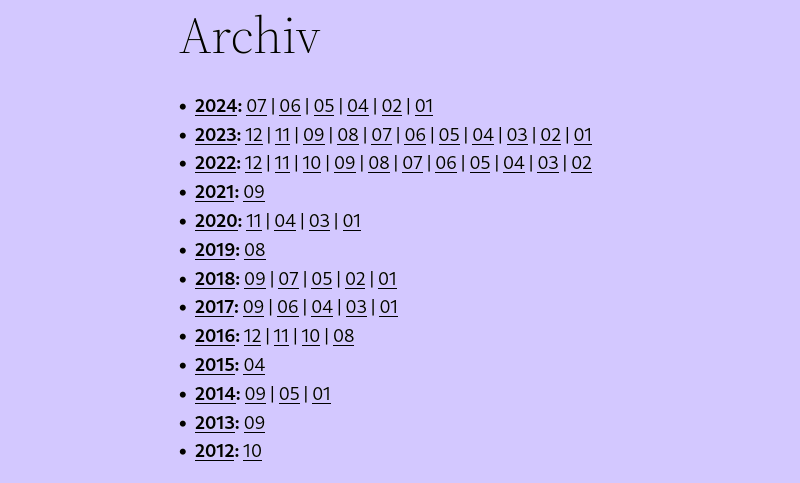-
50 years of microprocessor trend data

I recently wrote a (German) article including this graphic (in German). Here is an English version of it. Have fun!
-
Compact Archive for WordPress

The default WordPress «Archive» block becomes very long and narrow, when months accumulate. Here is an easy way to make it more compact.
-
DEFCON Voting Village 23 Panel

There was a DEFCON Voting Village panel «If I can shop online, why can’t I vote online?» which I found extremely important to read or listen to. Not just for me, in fact, for anyone talking about electronic voting. Here is a transcript for those who prefer reading (or searching for keywords).
-
Counting like a computer

Computers are very good at counting. But usually only within narrow limits. Here is an insight into where these limits come from and what goes wrong when they are exceeded.
-
SMTP Smuggling Status

«SMTP Smuggling» is a vulnerability that allows to circumvent some mail checks at the receiver and therefore will allow additional spam and/or phishing messages through. Here is the list of what we currently know.
-
The year in review

This is the time to catch up on what you missed during the year. For some, it is meeting the family. For others, doing snowsports. For even others, it is cuddling up and reading. This is an article for the latter.
-
Kensington PowerPointer for Linux LibreOffice

Navigating the slides works perfectly with the Kensington PowerPointer for LibreOffice under Linux, no questions asked. The extra functions (“laserpointing”, drawing, and screen blanking) are not well supported. Here is how to fix them.
-
NFTs are unethical

As an avid reader, you know my arguments that neither NFT nor smart contracts live up to their promises, and that the blockchain underneath is also more fragile and has a worse cost-benefit ratio than most believe. Similarly, I also claim the same for the metaverses built on top of them all. And that the…
-
Inefficiency is bliss (sometimes)

Bureaucracy and inefficiency are frowned upon, often rightly so. But they also have their good sides: Properly applied, they ensure reliability and legal certainty. Blockchain disciples want to “improve” bureaucracy-ridden processes, but achieve the opposite. Two examples:
-
How to block AI crawlers with robots.txt

If you wanted your web page excluded from being crawled or indexed by search engines and other robots, robots.txt was your tool of choice, with some additional stuff like <meta name=”robots” value=”noindex” /> or <a href=”…” rel=”nofollow”> sprinkled in. It is getting more complicated with AI crawlers. Let’s have a look.
